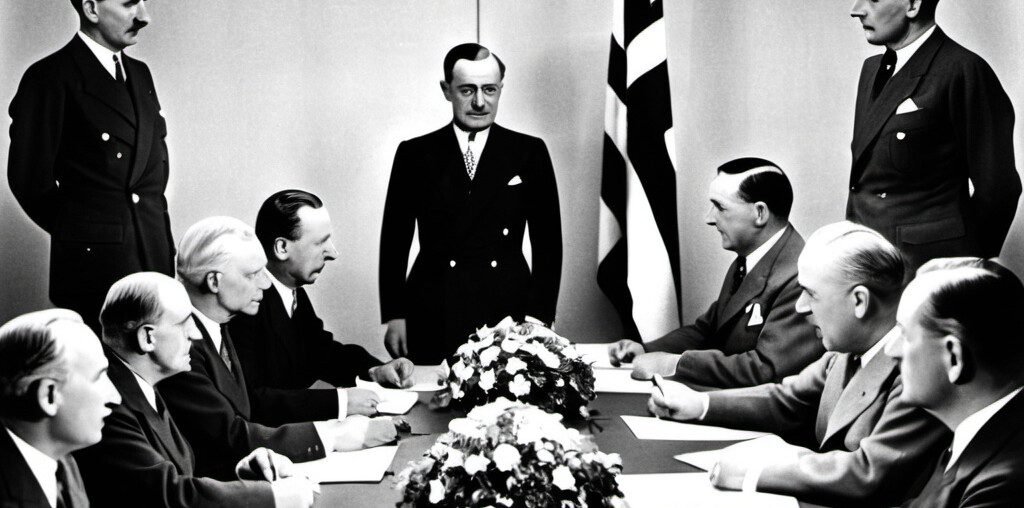Background: Before World War II, Germany under Adolf Hitler’s leadership was actively pursuing a policy of territorial expansion by trying to incorporate neighboring lands where German-speaking people lived.
The Sudetenland, an area in Czechoslovakia with a large German population, became a central focus of these aspirations.
What Happened: The Munich Agreement was signed on September 30, 1938, by Germany, Britain, France, and Italy, permitting Nazi Germany to take control of the Sudetenland.
The treaty was viewed as a strategy of trying to satisfy Hitler in order to prevent another large-scale war by the Western powers.
Significance for the Future: The Munich Agreement is frequently mentioned as a unsuccessful effort to avoid war through appeasement.
Hitler’s actions following this, such as the invasion of Poland in 1939, showed that giving in to aggressors only makes them more confident.
The Munich Agreement’s failure led to a change in global politics, as upcoming leaders began to understand the risks of appeasement and the significance of opposing aggressive regimes.
This lesson had an impact on international diplomacy both during the Cold War and in the years that followed.
